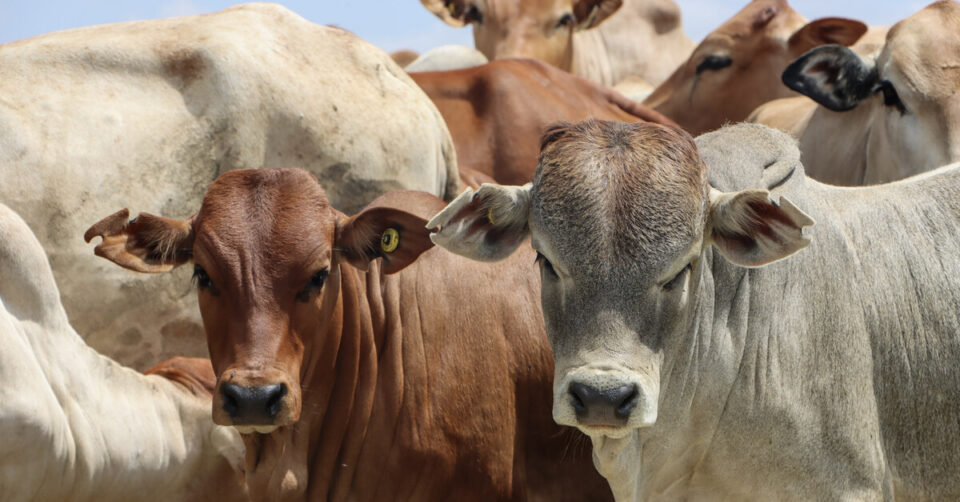The International Livestock Research Institute (ILRI), supported by the Bezos Earth Fund and the Global Methane Hub, has launched a three-year, US$3.35 million initiative to reduce methane emissions from African cattle. Part of the Global Methane Genetics Initiative, the project combines cutting-edge science with indigenous livestock knowledge to breed cattle that produce less methane (CH₄) while enhancing productivity, food security, and climate resilience for millions of smallholder farmers across the continent.
“Reducing methane from cattle is one of the most elegant solutions we have to slow climate change,” said Andy Jarvis, Director of the Future of Food at the Bezos Earth Fund. “Thanks to collaboration with the Global Methane Hub, we’re backing an effort that uses age-old selection practices to identify naturally low-emitting cattle—locking in climate benefits for generations to come.”
Livestock in Africa contribute 18% of global livestock methane emissions, with cattle alone responsible for 70% of emissions in Sub-Saharan Africa. Without intervention, these emissions could triple by 2050. By leveraging the genetic diversity of indigenous breeds and applying advanced scientific tools, the initiative aims to help African countries contribute to global climate goals, including the 1.5°C warming target.
“This initiative represents an important step toward a more sustainable and productive livestock sector in Africa,” said Raphael Mrode, Principal Investigator at ILRI. “By integrating advanced genetics with Africa’s indigenous breeds and farmer knowledge, we can reduce methane emissions while strengthening rural livelihoods through improved productivity.”
Key Components of the Initiative
The project will focus on several scientific and practical interventions:
-
Measuring methane emissions from 3,000 cows across five countries using advanced laser detectors and mobile apps, linked to existing data on 9,000 cows.
-
Profiling microbial communities in over 1,000 tropical cows to understand the link between rumen microbes, productivity, and methane emissions.
-
Breeding climate-smart cattle that withstand heat, require fewer resources, and produce lower greenhouse gas emissions, which will be integrated into national breeding programs in Kenya, Ethiopia, South Africa, Burkina Faso, and Benin.
-
Capacity building, including recruitment and training of technicians, strengthening national breeding centers, and publishing bull and cow rankings accessible to farmers.
Regional Collaboration
ILRI will coordinate this Africa-wide initiative from Nairobi, Kenya, and Addis Ababa, Ethiopia, in partnership with leading research organizations including the Agricultural Research Council (South Africa), CIRAD (France), CIRDES (Burkina Faso), and Université d’Abomey-Calavi (Benin). Additional partnerships with organizations such as URUS and GENUS will support dissemination through breeding centers and farmer networks.
“This work brings together the best of science, industry, and the global breeding community to accelerate genetic improvement for methane efficiency worldwide,” said Roel Veerkamp, Professor and leader of the initiative at Wageningen University & Research. “It fits nicely with our mission at WUR to explore the potential of nature to improve quality of life.”
Expected Impact
The initiative aims to deliver measurable benefits over time:
-
Achieving a 12% reduction in livestock methane over 20 years through annual 0.6% reductions at the population level.
-
Improving productivity to reduce methane produced per kilogram of milk by 20–25% within five years.
-
Making genomic data publicly available to support widespread, low-cost breeding improvements.
-
Expanding access to productive, climate-resilient livestock for smallholders, particularly women and youth.
This initiative represents a major step in aligning livestock research with climate action, offering a permanent, cost-effective pathway to methane mitigation while securing the future of Africa’s smallholder farming communities.



